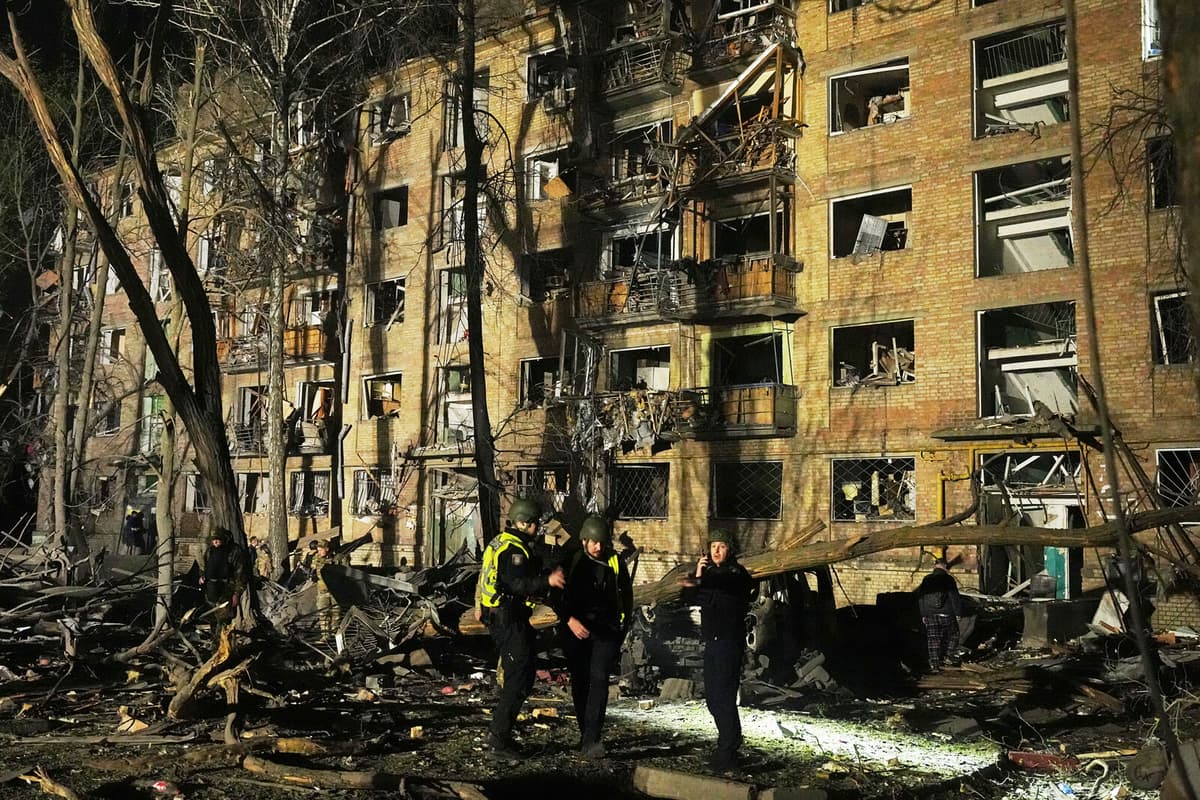The sirens began to sound in Kyiv just after midnight and at 1 am, the explosions were heard, says Haslund, who works as a spokesperson for the UN refugee agency UNHCR in the Ukrainian capital and has lived there for a year and a half.
Like many other people in Kyiv, I was sleeping in my bed.
Elisabeth Haslund first took shelter in her bathroom, but later went down to the subway, her nearest shelter, where others also sought refuge.
Many, however, do not have the same opportunity to get to shelters, says Haslund. In the attack, at least twelve people were killed and 90 injured, according to Ukraine's state rescue service.
The rescue operation is still ongoing and the numbers may grow, says Haslund on Thursday evening.
Great destruction
At the same time, she points to a great material destruction. A large number of homes have been destroyed.
Haslund calls the situation - three years of full-scale war with continued air strikes and civilians paying a high price - alarming. But in Kyiv, people are still trying to get their daily lives to work, even the day after the devastating attack.
People go to work, shops are open. It's quite impressive how well it works in Kyiv even after such a night.
"Not normal"
But war must not become routine, means Elisabeth Haslund.
It's not normal, it's not usual to be woken up in the middle of the night by explosions and sirens.
UNHCR is now working on site with other non-governmental organizations to, among other things, distribute materials that can be used to secure blown-out walls. In addition, everything from psychosocial care and counseling to hygiene items and blankets is offered.
At the same time, the humanitarian need around Ukraine is massive.
If we are to continue our work and emergency aid, support must also continue to Ukraine.






